Brighton Rock: Discover Graham Greene’s most iconic novel.
£5.70
Gripping, terrifying, an unputdownable read. Discover Graham Greene’s most iconic novel.
A gang war is raging through the dark underworld of Brighton. Seventeen-year-old Pinkie, malign and ruthless, has killed a man. Believing he can escape retribution, he is unprepared for the courageous, life-embracing Ida Arnold. Greene’s gripping thriller exposes a world of loneliness and fear, of life lived on the ‘dangerous edge of things.’
In this gripping, terrifying, and unputdownable read, discover Greene’s iconic tale of the razor-wielding Pinkie.
‘Brighton Rock when I was about thirteen. One of the first lessons I took from it was that a serious novel could be an exciting novel – that the novel of adventure could also be the novel of ideas’ Ian McEwan
WITH AN INTRODUCTION BY J.M. COETZEE
Read more
Additional information
| Publisher | Vintage Digital, Centenary Ed edition (2 Oct. 2010) |
|---|---|
| Language | English |
| File size | 2649 KB |
| Text-to-Speech | Enabled |
| Screen Reader | Supported |
| Enhanced typesetting | Enabled |
| X-Ray | Enabled |
| Word Wise | Enabled |
| Sticky notes | On Kindle Scribe |
| Print length | 258 pages |

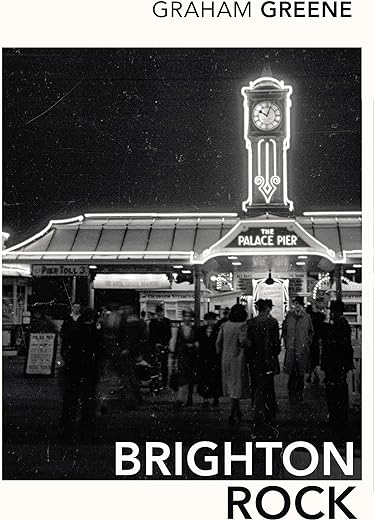
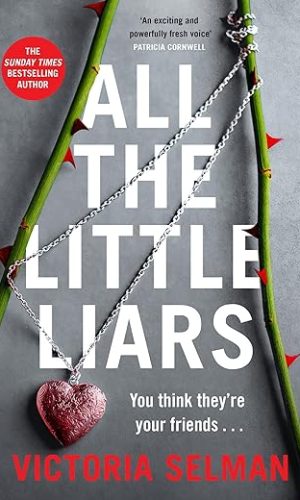
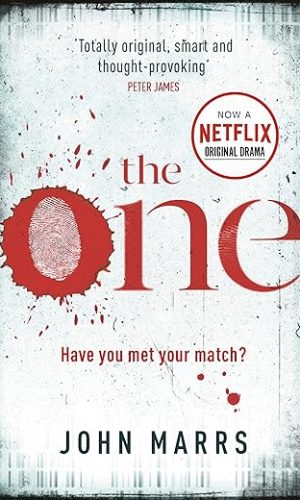
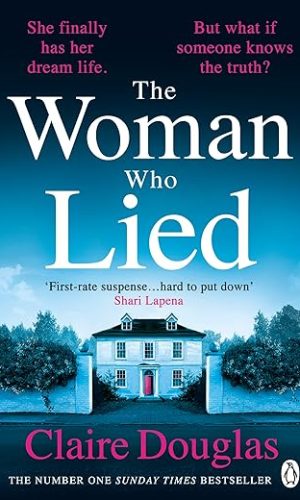
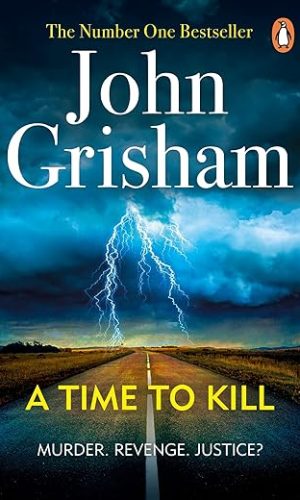
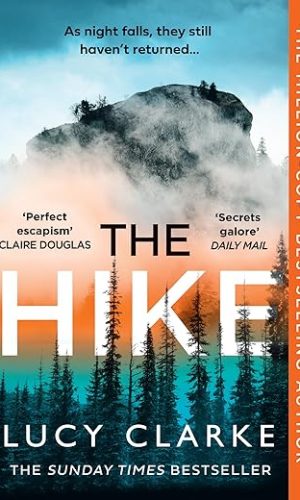

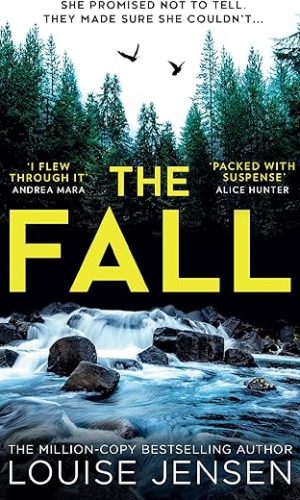
by Miscellany Pages
Synopsis: The novel is set in 1930s Brighton, where the holiday amusements sit in stark contrast to a sinister gang underworld. Central to our view of this underworld is Pinkie, a boy of only 17 who orchestrates the killing of rival gang informer Fred. Little does he know that Fred had befriended the uncompromisingly righteous Ada, who is determined to see justice done. As he commits more and more dark acts to protect himself and his fragile status, Pinkie is left spiralling further into a state of amorality and despair.
Review: I will begin with a warning. If you are looking for a little light reading then I suggest you look away now, as Brighton Rock is nothing of the sort. It’s dark, it’s heavy, and it’s frankly pretty depressing. However, this does nothing to dull the fact it is also compelling literature that manages to unsettle, frighten and fascinate all at the same time.
I have put this book in the category of ‘thriller’ but in reality it defies categorisation. As well as a murder novel, there are also elements of a psychological thriller plus a sustained exploration of morality and human nature.
The aspect of Brighton Rock that stood out for me most was the characters. Greene’s main character Pinkie is controversial and fascinating. He may be a razor-blade-wielding psychopath, but despite this I still could not bring myself to completely hate him. I found this very unsettling, but it can probably be attributed to a sense of pity I felt for Pinkie and the utter bleakness of his existence, ‘Heaven was a word: hell was something he could trust.’
It may be desperation to escape an equally miserable life as an underpaid waitress that drives Pinkie’s girlfriend, Rose, to remain obsessed with her misogynistic and abusive partner. Her naïve and needy attachment paints a saddening picture, even if such passivity is enough to make any modern woman cringe.
Ada is the only character that acts as a source of brightness in the novel. She is jolly and pleasure-seeking yet maintains a strong sense of principle. Not only is Ada there for entertainment, Greene uses her as a central point for the book’s moral exploration. However, I found that the endless contrasts drawn between her and Pinkie became a little heavy-handed at times.
Characters remain the central point of the novel, with complex relationships and an uneasy combination of friendship and mistrust. However, there is also has a strong plot with a careful balance of description, character development and action. The tension is expertly maintained; with such an amazing opening line ‘Hale knew, before he had been in Brighton three hours, that they meant to murder him’ it is impossible not to keep reading.
Brighton Rock is the sort of book that leaves you with more questions to wrestle with than answers. Many of these major questions are as relevant now as they were in the 1930s. Are people inherently good or bad? Are we simply the consequence of our upbringing? And what is the making of a murderer?
Favourite quote: ‘You been in love?’ the Boy asked sharply and uneasily. ‘Oh yes,’ Rose said. The Boy retorted with sudden venom, ‘You would have been. You’re green. You don’t know what people do.’
by D Webster
The first Greene novel I have read, I put Brighton Rock away part way through, appalled by the way Greene juxtaposes violence with poetry, and its dramatis personae: adrift on a filthy toxic sea without moral or ethical compass, love or any sense of genuine loyalty. I thought it was too dark for me.
Telling myself it was just a novel, I picked it up again and having finished it, my conclusions are now that the genius of its characterizations (however briefly characters appear they are believable) and the action stemming from the characters rather than the other way around, added to which the poetic descriptions make this a brilliant, appalling, page-turning literary novel and well deserving of its status as a British classic.
The novel starts with Hale being pursued in Brighton. His fear is palpable and easy to identify with. Greene delineates it in unnerving and microscopic detail. Hale acts as a guide leading us like Orpheus into Hades that was the Brighton underworld of the 1930’s.
Women get just as poor treatment as men here. Rose: the insipid and steadfastly stupid waitress; Ida who is a bit of a lush and our only semblance of a moral compass who takes her lead from the Ouija board and who has any number of boyfriends. Judy, Billy’s “red-haired bitch” who is casually adulterous at home; Drewitt’s wife, the “old hag” with tousled hair and a “hard and bitter face”; Mrs Wilson, Rose’s mother who sits in her filthy kitchen with the stove unlit and the dishes unwashed. These are people who would and do, sell out their spouses, children and friends at a moments notice. Like their male counterparts, whose loyalty to anyone is skin deep and who will readily act the Judas given a small incentive: fifteen guineas being the price for Rose.
Were it not for Ida taking the staff of justice I could have suspected Greene of misogyny, but misanthropy is perhaps a fairer conclusion, men being just as unpleasant as the women.
I, for one, am grateful that Ida doesn’t let up her pursuit of Pinkie. But then again, I am a stickler for at least one sleuth against a backdrop of crime in film or fiction.
Pinkie’s scarred and distorted understanding of sex as something shameful mirrored my feelings about the people – our forebears in pre WW2 Britain depicted in Brighton Rock: whores and villains.
It is easy to assume that previous generations had more of an ethical/moral backbone than contemporary society (what with the centrality of the church then). This is an unusual novel in that it shows the opposite. Underworld, race-fixing Brighton in the 1930’s is a place where dog eats dog and religion is distorted in Pinkie’s mind, to such an extent that he cannot even imagine heaven or a place of goodness. Thankfully forensic mental health and the police service have developed a good deal since that time, and ethical society, even without the church, is the rule rather than the exception.